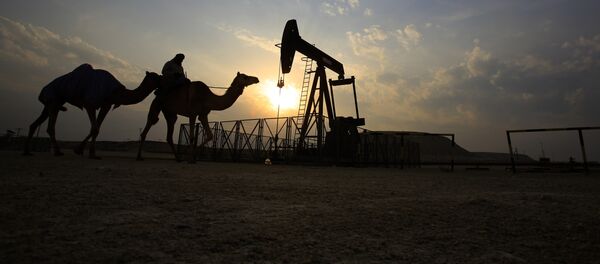The interview came after Russia and Saudi Arabia agreed on Monday on joint measures and steps that must be taken in cooperation with other oil producers to stabilize the oil market and ensure the stability of long-term investments.
"This agreement will also affect the political situation in the region, especially Riyadh's stance on Middle East-related issues. From Saudi Arabia's point of view, oil production should be in line with market demand so as to prevent excess or a shortage of production," he said.
According to him, the increasing oil prices may have a negative effect because the cost of oil affects the prices of other goods in the international market.
Bin Omar stressed that no permanent agreements exist on oil prices between Russia and Saudi Arabia.
As for the Monday deal, he described it as a treaty obliging the countries to hold a meeting to develop a preliminary basis for oil policy, given that in previous years it was OPEC which established oil prices.
Signing a joint declaration on Monday, Russian Energy Minister Alexander Novak and Saudi Arabia’s Minister of Energy, Industry and Natural Resources, Khalid bin Abdulaziz Al Falih, noted the long-term challenges facing oil exporting countries.
These challenges include capital spending cuts on exploration as well as the mass cancellation or rescheduling of investment projects.
"In view of the above, the ministers noted the particular importance of constructive dialogue and close cooperation between the major producing countries in order to maintain stability in the oil market and sustainable investment in the long term," the joint statement said.
The joint statement was signed in China’s Hangzhou on the sidelines of the G20 summit and followed a meeting between Russian President Putin and Saudi Deputy Crown Prince Mohammed bin Salman.
The two ministers announced that both countries have recognized an oil output freeze as the most effective tool available to provide stability to the oil market. Alexander Novak called the agreement a “historic moment” in relations between a member and a non-member of the Organization of the Petroleum Exporting Countries (OPEC).





